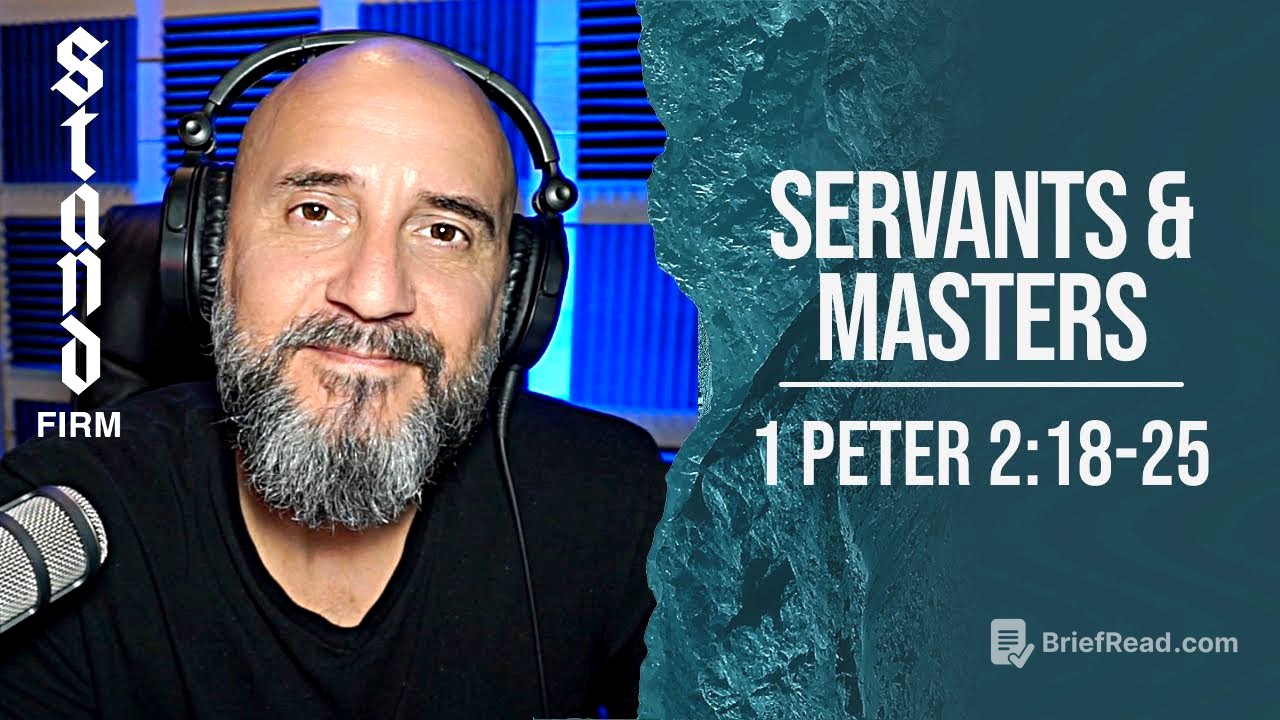TLDR;
Pastor Phil provides a follow-up to his previous message on submission, focusing on the passage in 1 Peter 2:18-19 regarding servants and masters. He clarifies the historical context of servitude in the first century, distinguishing it from American racial-based slavery, and explains that Peter's message is about maintaining a Christ-like attitude even when treated unjustly. The key takeaway is that believers should conduct themselves in a way that reflects God's love and potentially leads others to Jesus, even in difficult workplace situations.
- Contextualises the passage about servants and masters within its first-century setting, differentiating it from American slavery.
- Highlights the importance of a Christ-like attitude in the face of unjust treatment, as a testimony to others.
- Offers practical advice for modern workers, balancing submission with the freedom to seek better employment if necessary.
Introduction: Following Up on Submission [0:00]
Pastor Phil introduces the video as a follow-up to his sermon on 1 Peter 2:13-17, which discussed submitting to governmental authority. He acknowledges that the broader passage also addresses servants submitting to masters and wives submitting to husbands. Due to the current political climate, he initially focused on governmental submission but promised to return to the other sections. This video addresses the second section, concerning servants and masters.
Historical Context of Servanthood [1:12]
Pastor Phil reads 1 Peter 2:18-19, which instructs servants to be subject to their masters with respect, even to those who are unjust. He acknowledges the sensitivity of the topic, particularly in America, where the term "servants and masters" is often associated with racial-based slavery. He clarifies that Peter wrote this in the mid-60s AD, when slavery and servanthood were normal aspects of the culture. Peter's writing to servants doesn't condone slavery but reacts to the reality of the first-century world, where many Christians were servants or slaves within the Roman province.
The Purpose of Submission [4:04]
The core message of the submission passage is that Christians should live peaceable lives that reflect Christ's example. In the first century, Romans often reviled Christians, so Peter encourages believers to live in such a way that their actions would shame their accusers and demonstrate their peace-loving nature. Servants who suffer unjustly should associate their suffering with that of Jesus, who, despite being reviled, did not revile in return.
Applying Submission to Modern Life [6:03]
Pastor Phil applies this passage to modern workers who may feel unfairly treated by bosses or co-workers. He advises that instead of threatening or reviling, they should endure suffering in a Christ-like manner, as a testimony to those around them. He notes a key difference between the first century and today: modern workers have the freedom to leave their jobs if they are being mistreated or asked to do something unlawful. If leaving isn't immediately possible, he suggests submitting while seeking other options. He recommends Dan Miller's book "48 Days to the Work You Love" as a resource for those seeking a career change. Ultimately, he emphasises that conduct in the workplace should reflect God and potentially lead others to Jesus.
Conclusion and Preview [8:21]
Pastor Phil concludes by expressing his hope that the message was helpful. He announces that he will return with a third video addressing the controversial topic of wives submitting to their husbands.









